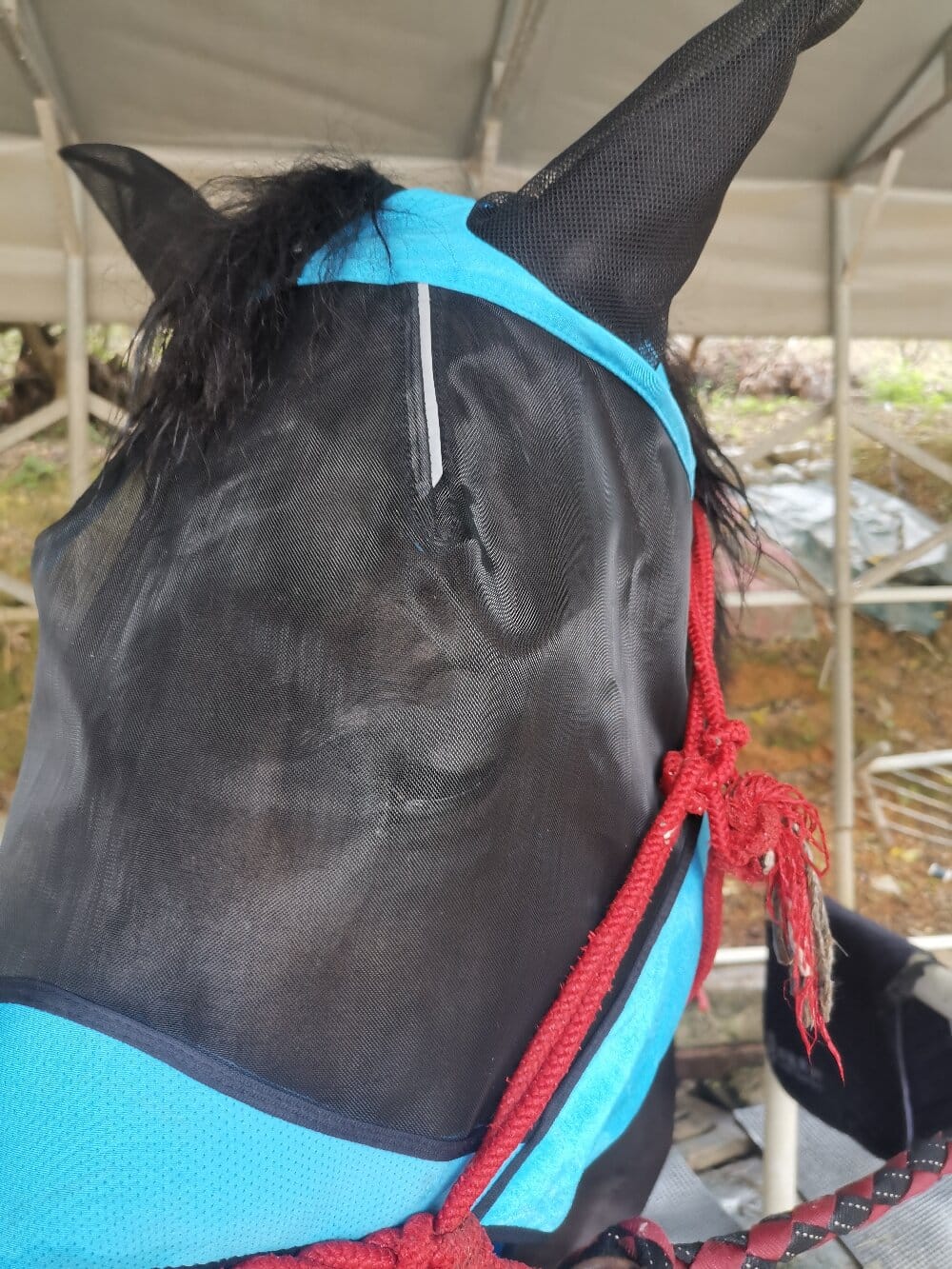A horse fly mask is an essential piece of protective gear designed to shield horses from irritating and potentially harmful insects. Flies, mosquitoes, and other pests can cause discomfort, stress, and even infections in horses, making fly masks a critical tool for equine care. This case study explores the benefits, types, and real-world applications of fly masks, highlighting their role in maintaining horse health and performance.
Case Study: How a Fly Mask Improved a Horse’s Comfort
In a recent study conducted at a busy equestrian center, a group of horses was observed over a three-month period. Half wore a horse fly mask, while the other half did not. The results were striking:
- Reduced Irritation: Horses wearing fly masks exhibited fewer signs of distress, such as head shaking or rubbing against fences.
- Lower Risk of Infection: The masked group had no cases of eye or ear infections, unlike the unmasked group, which experienced several incidents.
- Improved Performance: Riders reported better focus and cooperation from horses wearing fly masks during training sessions.
Types of Horse Fly Masks and Their Features
Fly masks come in various designs, each tailored to specific needs. The most common types include:
- Standard Fly Masks: These cover the eyes, ears, and sometimes the muzzle, offering basic protection against flies and UV rays.
- Full-Face Masks: These provide extended coverage, including the jaw and lower face, ideal for horses with sensitive skin.
- UV-Protective Masks: Designed with special materials to block harmful sunlight, these are perfect for horses prone to sunburn.
- Earless Masks: A lightweight option for horses that dislike ear coverage but still need eye protection.
Choosing the Right Fly Mask for Your Horse
Selecting the best horse fly mask depends on several factors, including the horse’s environment, sensitivity, and activity level. Key considerations include:
- Fit: A properly sized mask ensures comfort and prevents slipping.
- Material: Breathable, durable fabrics like mesh are ideal for long-term wear.
- Visibility: The mask should allow clear vision without obstructing the horse’s field of view.
- Ease of Cleaning: Machine-washable masks save time and maintain hygiene.
Real-World Benefits of Using a Horse Fly Mask
Beyond insect protection, fly masks offer additional advantages:
- Prevents Allergic Reactions: Horses with allergies to insect bites benefit greatly from reduced exposure.
- Enhances Recovery: Injured or post-surgical horses heal faster without the distraction of pests.
- Boosts Mental Well-being: A comfortable horse is a happier, more cooperative partner.
Conclusion: A Small Investment with Big Returns
A horse fly mask is a simple yet highly effective solution for protecting horses from pests and environmental stressors. As demonstrated in real-world cases, these masks improve comfort, health, and performance, making them indispensable for responsible horse owners. Whether for training, competition, or daily care, investing in a quality fly mask ensures a happier, healthier equine companion.

